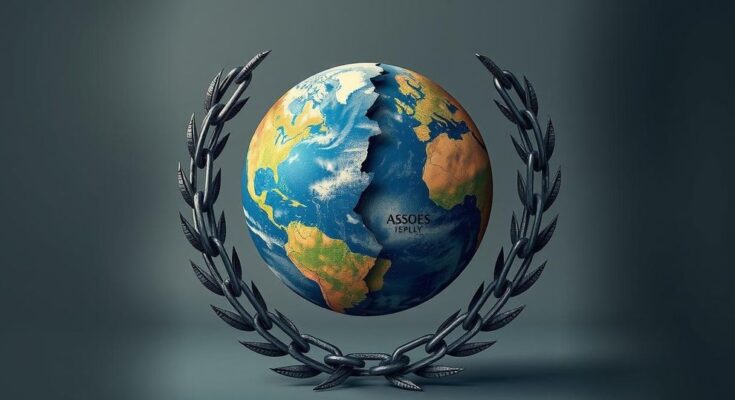U.S. President Donald Trump has re-designated Yemen’s Houthis as a Foreign Terrorist Organization due to threats posed to American security and global maritime stability. This decision affects USAID’s partnership dynamics and humanitarian aid efforts in Yemen, which is already suffering from severe crises due to ongoing civil war and Houthi attacks on shipping. The designation has prompted mixed reactions, with implications for international relations and relief efforts in the region.
On November 2023, United States President Donald Trump re-designated Yemen’s Houthi movement as a Foreign Terrorist Organization (FTO). An executive order stated that the actions of the Houthis pose threats to American civilians and personnel in the Middle East and jeopardize the stability of global maritime trade. Consequently, the U.S. Agency for International Development (USAID) must sever ties with any partners linked to the Houthis or who criticize countermeasures against them, potentially impacting humanitarian efforts in Yemen.
The Houthis have gained notoriety in the prolonged civil war in Yemen, which began when they seized control of the northern region a decade ago. This conflict has resulted in catastrophic humanitarian consequences, with over 150,000 fatalities and millions displaced. Although previous President Joe Biden lifted the FTO designation in 2021 to address the humanitarian crisis, he reinstated the Houthis as Specially Designated Global Terrorists in January due to their aggression against maritime shipping and Israel.
Since November 2023, the Houthis have escalated attacks on merchant vessels in the Red Sea and Gulf of Aden, attributing their actions to support for Palestinians amid the ongoing hostilities between Israel and Hamas. They have targeted multiple vessels, resulting in casualties and emphasizing their stated objective of combating perceived Israeli-related shipping. However, such claims have been criticized for lacking factual basis.
In response to these assaults, the U.S. and allied forces have conducted airstrikes on Houthi positions, while Israel has retaliated against missile launches perceived as threats from Yemen. The designation of the Houthis as an FTO plays a critical role in U.S. financial constraints on the group, enabling legal actions against those enabling Houthi activities. Humanitarian organizations have voiced concerns that these measures could hinder operation in Houthi-controlled regions, where the majority of Yemenis reside.
Abdul Rahman al-Ahnumi, a representative from the Houthi-controlled media, indicated that any detrimental effects on Yemenis would be met with escalated responses. Conversely, Rashad al-Alimi, chair of Yemen’s recognized presidential council, expressed gratitude towards President Trump, stating the designation is essential for accountability and advancing peace efforts in the region. However, the full implications of this re-designation remain uncertain as the situation evolves.
The Houthis are a Zaydi Shia group that emerged in the early 2000s, primarily based in northern Yemen. Their rise to prominence can be traced back to a civil war that originated when they took control of territories formerly held by Yemen’s internationally-recognized government. The conflict has attracted significant regional involvement, most notably from a Saudi-led coalition seeking to restore the previous government, leading to a complex humanitarian crisis affecting millions in Yemen. In recent years, the Houthis have increasingly engaged in regional conflicts, particularly through targeted attacks on vessels in key shipping lanes and retaliations against Israel, complicating diplomatic resolutions to the ongoing conflict.
President Trump’s re-designation of the Houthis as a Foreign Terrorist Organization is expected to have significant implications for U.S. foreign policy, humanitarian aid in Yemen, and regional stability. The action is rooted in concerns over the security implications posed by the Houthis’ activities in the Middle East and their targets involving maritime assets. While the designation aims to hold the Houthis accountable, it also raises fears among humanitarian organizations concerning their ability to operate in Yemen, thereby complicating the already dire humanitarian situation.
Original Source: www.bbc.com




